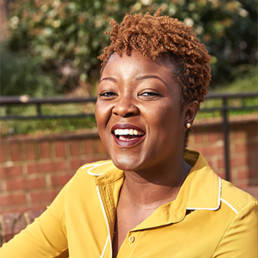
Written by Ayo Awotona
Ayo Awotona specializes in confidence building for girls in education. She does this through programs, workshops, and keynote speeches.
When it comes to speaking about race, white privilege, and colorism; things can often get a tad bit uncomfortable or even awkward, to say the least.
This is understandable. More often than not, these are difficult conversations for most people, and difficult conversations are often characterized by emotions such as fear, anger, frustration, conflict, and other strong dividing — not unifying — emotions. These emotions are often suppressed and can be released rather strongly.
Why is this?
It’s because emotions can run high on both sides, and there is room for the conversation to become quite heated on either or both sides.
This is just one perspective as to why uncomfortable conversations are hard.
So I hope that takes some pressure off of you depending on your curiosity as you first read the title to this blog post 🙂
So let’s dive into this simple (yet, rather complex) question.
How can we raise anti-racist leaders? That is, how can we empower our young people in the world today to make a change by first recognizing racism and challenging it in this seemingly never-ending cycle of systemic oppression?
Before I continue, I must add here that this question is not thrown out to one particular race. This is a question that’s being thrown to each and every one of us reading this (yes! Even me as a Black-British Nigerian woman), because the reality is… change starts with every single one of us. All races and denominations. Change looks different on each and every one of us – rather than a one-size-fits-all approach.
To kick us off with answering this question, it’s important for us to acknowledge/be reminded that children are not colorblind. Children are very much aware of racial differences.
Permit me to simplify how young children learn about race to:
- what they see (both directly and indirectly),
- what they hear, and;
- what they are taught (both at home and in school).
This is really encouraging because it means we (as educators and leaders) play a big role in positively influencing the trajectory of their lives.
Now let’s talk about developing an anti-racism strategy for our young people.
There are different ways to make a change so I’ll give 3 examples of practical things that can be done to help raise anti-racist leaders.
Behavioural Change
As leaders, we ought to know and lead ourselves before we lead others. This means we essentially can’t give what we don’t have. Here are some tips for being intentional about our own growth:
- Listen to other perspectives and de-center yourself
- Boost the voices of the marginalized
- Educate yourself
- Acknowledge your own privilege and propensity for unconscious bias
- Challenge discrimination, even when you feel scared
- Keep the conversation going
Raising Awareness
Sometimes, one of the most powerful things we can offer young people is awareness. This is where we’re focusing their attention on a cause or issue in the world (in this case, related to race). The objective is to increase their understanding – but of course, we must be in a position where we are practicing this ourselves.
Action Planning
A great way to empower young people to take charge of their own learning is through projects – whether this is through achieving tangible or intangible objectives. Action planning activities are designed to support students to build the necessary skills for work and life, as active local and global citizens.
So what could this look like?
Running a workshop where students come up with a project idea to take action on!
During the workshop and overall project duration, it’s important that we support students with their ideas, but steer them in the direction of what is realistic. It is important not to stamp out their creativity, but equally important to ensure students have a clear understanding of how their action plan can be S.M.A.R.T. (Specific. Measurable. Attainable. Relevant. Time-bound)
Some suggested questions to guide your students are:
- What issues do you see happening in your local community that make you upset/angry/you would like to change?
- What issues do you know of happening in your global community? Have you read or seen anything in the news recently?
- If you could change one thing in your local/global community, what would it be?
I strongly believe that for us to move in the right direction of raising anti-racist leaders, change starts with both you and me.
My name is Ayo, Ayo Awotona.
Let’s keep the conversation ALIVE!

